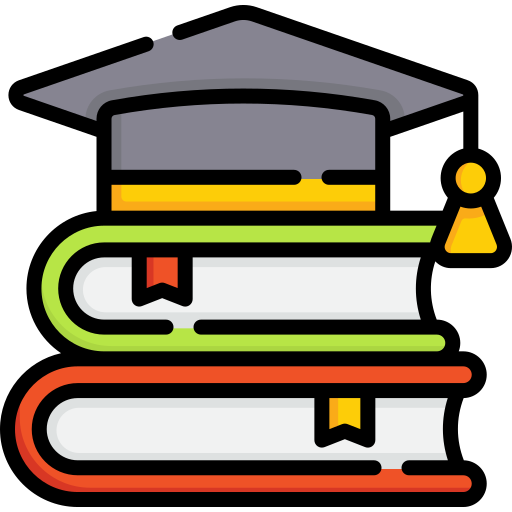Essential ingredients for Python career success
Education, experience, and skill requirements for 5 Python specializations
Hey Grokking Python readers!
We’re all used to fulfilling requirements of some sort, whether from taking courses, applying for jobs, or doing business with banks or government offices. Satisfying various conditions is just part of life, and perhaps nowhere is this more evident than in dealing with potential employers.
Today, we're going to look closely at requirements as we continue our series on Python careers. So far this month, we've talked about different Python specializations and outlined six steps to becoming a Python developer. Now, we're turning our attention to certain requirements you’ll want to satisfy if you’re launching a Python career.
Don't worry if you're new to this series or newsletter. We'll connect the dots for you. This issue will specifically cover:
Educational requirements
Experience requirements
Skill requirements
Before we dive in, a quick note. Everyone has different goals and expectations of what kind of Python developer they want to become, and as such, individual requirements will vary. We've done our best to cover various scenarios, but your experience may be different.
Let's get started!
What are the requirements to become a Python developer?
There's no single rubric to determine someone's readiness to become a Python developer. When we talk about requirements for education, experience, and technical skills, we are offering broad recommendations based on some common threads within the field.
Education
It may seem obvious but learning the Python programming language is essential regardless of the type of developer you want to become. That said, you've got options for how you learn!
A bachelor's degree in computer science or a closely related field is not required but is highly preferred. You can also gain Python skills via a coding bootcamp, certificate course, or self-study.
Relevant experience
To get a Python job, you will need experience. Requirements will vary depending on the seniority level of the job you are applying for.
The best ways to gain experience in Python despite having no professional industry experience include:
Internships: Internships will help you gain the know-how of a developer and give you the opportunity to practice skills while you’re learning them. Many times, interns get full-time employment offers from companies.
Contributing to open-source projects: Open-source projects are an excellent way to showcase your skills to the world because they are public, and employers can verify your skills directly.
Technical skills
Different Python specializations require various technical skills. We have listed the skills you will likely need for five different Python specializations below, giving examples of specific technologies in parentheses. We’ve also provided additional details about education and experience requirements.
1. Data Scientist
Skills and technologies
Data scraping (Selenium, Beautiful Soup, etc.)
SQL
Data visualization (matplotlib, Pandas)
Machine learning (scikit-learn)
Education and experience
A bachelor's degree in data science, mathematics, statistics, or computer science is likely required.
Experience with statistical analysis, linear regression, and data visualization.
2. Web application developer
Skills and technologies
Version control (Git, GitHub)
Object-oriented programming in Python
Web frameworks (Django, Flask, etc.)
Other popular Python libraries
HTML, CSS, JavaScript
Education and experience
A bachelor's in computer science is beneficial, but not required, especially if you are targeting junior roles.
Entry-level positions and junior roles are widely available.
3. Machine learning engineer
Skills and technologies
A solid knowledge of core Python
Data structures and algorithms
SQL
Probability, statistics, and mathematics
Data modeling
Scikit-learn, Pandas, Numpy, Seaborn
Education and experience
Most employers expect a minimum of a mathematics or computer science degree. A few even require a master's or higher, especially for research-based roles.
These positions are usually not entry-level. It is possible and at times easier to make a career switch from software engineering to machine learning.
4. Game developer
Skills and technologies
Object-oriented programming in Python
Python game development frameworks (PyGame, Pyglet, PyKyra, PyOpenGL, Panda3D, etc.)
Other programming languages (C++, Java, etc.)
Education and experience
A bachelor's degree in computer science is preferred, but bootcamp grads and self-taught developers are also hired in these roles.
While Python is used for game development, it is not the primary language used, and you will most likely require experience in other programming languages to stand out as a competitive applicant.
5. Software automation engineer (IT)
Skills and technologies
SQL
Data visualization (matplotlib, Pandas)
Machine learning (scikit-learn)
Developing and implementing REST APIs
A solid knowledge of core Python
Applied mathematics and engineering
Education and experience
A bachelor's degree in computer science is preferable, but employers will hire candidates with bootcamp backgrounds based on their coding expertise.
Sometimes, even entry-level automation engineer jobs require a bachelor's in an engineering field such as mechanical engineering.
Soft skills
While technical skills will ensure you have what it takes to get the job done, it is equally important to have good soft skills. Employers are looking for a certain set of soft skills, such as:
Leadership and ownership
Analytical problem-solving skills
Tenacity
Communication and teamwork
Eagerness to learn
Typically, employers ask applicants behavior-based questions about these skills to gauge whether they have what it takes to perform well on a team.
Next steps to becoming a Python developer
Congratulations on completing the third and final edition of our series on becoming a Python developer! If you've read the whole series, you probably have a solid idea of the journey ahead, including the steps to follow, skills and other requirements, potential compensation, and roles you can expect in this field.
Now, depending on your goals, you can start refining your career plan and working on your Python dream.
At Educative, we can help you get started with a free crash course, Learn Python 3 from Scratch, which gives you hands-on experience in Python 3 and teaches you everything from basics to advanced concepts.
Additionally, you can learn about more specialized technologies from the following resources:
As always, happy learning!






